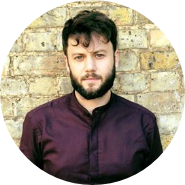Most of us can guess that Mandarin Chinese is the language with the most native speakers – 1.3 billion people, or one out of every six – around the world. It is followed by Spanish, with 471 million native speakers. English is only third, with 370 million, Hindi with some 340 million. Then comes Arabic, with about 315 million native speakers – but Arabic – believed to be at least 1,500 years old – and its different dialects are spoken by 422 million speakers (native and non-native) in the Arab world as well as in the Arab diaspora. Arabic is believed to be at least 1,500 years old.
Far behind, of course, are speakers of Hebrew – the precious language of the Bible, with about nine million speakers – five million of them considering it their mother tongue.
The UN’s International Arabic Language Day is commemorated each year on December 18, which is the anniversary of a resolution passed by the UN General Assembly making Arabic one of their official and working languages. Believe it or not, students at the Taub Faculty of Computer Science at the Technion-Israel Institute of Technology in Haifa recently developed an app to help people learn Arabic.
The app, part of the Madrasa Project, includes a voice recognition component that will allow tens of thousands of students doing online courses to practice their pronunciation in Arabic. Madrasa is the Arabic word for any type of educational institution, secular or religious (of any religion), whether for elementary instruction or higher learning.
The Technion’s Madrasa is a free-to-use socio-community-technological project that advocates for better communication in Israeli society through spoken Arabic courses. It promotes Arabic learning through a platform that includes free online courses, extensive activity through digital channels and many different collaborations. There are currently more than 100,000 students enrolled in Madrasa courses.
According to Gilad Sevitt, founder and director of Madrasa, “During our seven years of operations, we have seen the need for people to practice their speaking proficiency while learning, while hearing the same question from students over and over again: ‘What about an app?’”
This question led to recent cooperation between Madrasa and the Taub Faculty as part of an “Industrial Project” course under the guidance of Prof. Alex Bronstein. The course is focused on cooperation with industry and in the future will also lead to collaborations with various social organizations.

The project was aided by students Mahmod Yaseen and Rajeh Ayashe, who focused on developing voice recognition, and students Noor Hamdan, Rina Atieh, Lina Mansour and Wadad Boulos, who worked on developing the app. “Working with the students was very effective and helpful,” Sevitt said. “They came on board and contributed greatly to our project, and we enjoyed working together on both the linguistic and technological levels.”
Yaseen and Ayashe created an effective infrastructure for “bots” (a software program that performs automated, repetitive, pre-defined task to have conversations with others). The bot creates a conversation in spoken Arabic and teaches new students to pronounce words and have conversations on various topics. The conversations were written by Madrasa’s pedagogical team, and the students developed an editor that directs the level of conversation and content according to the knowledge gained by each student in the online courses.
The IBM company has been enthusiastic about the development and is considering moving forward with it. “With the help of Technion students, we were able to develop a voice recognition component that will finally allow tens of thousands of students in our online courses to practice their pronunciation in Arabic and speak while learning,” Sevitt said. “The component will be integrated as soon as possible in the courses alongside all videos, games, and exercises, and will be a kind of conversation bot through which students can practice their proficiency of spoken Arabic.”
This project, in which Hamdan, Atieh, Mansour and Boulos are partners, includes the initial development of the app as well as dealing with various adjustments and glitches (bugs) in the future. The app will upgrade the students’ learning experience, provide alerts,and serve as the basis for many other developments, such as mobile games and more. It is expected to be released on Beta in the coming months.





